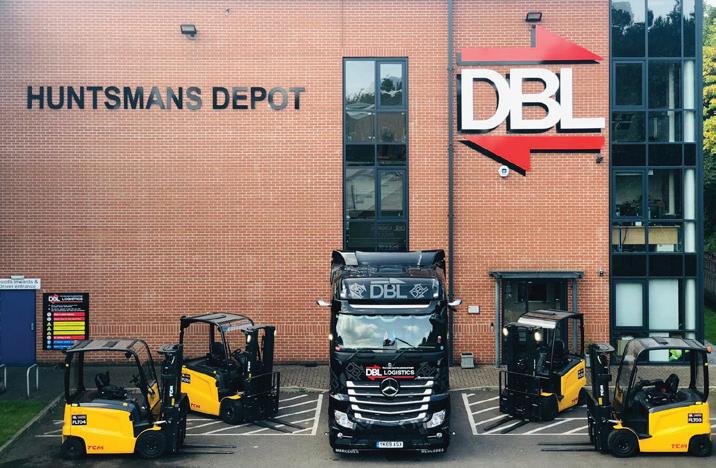TALKING HEADS Dan Crowe
Dan Crowe is optimisation manager at Inspired Energy
Cut the jargon around net zero The amount of ‘carbon jargon’ has exploded in recent years. Without clarity of definition Dan Crowe is concerned businesses will become mired in confusion
B
usinesses have been crying out for clarity around net zero since it was set into law. Despite setting out plans for a ‘green industrial revolution’, and the recent publication of the Energy White Paper, no all-encompassing net zero road map has been published by the government, creating a sense of frustration for many organisations. In the meantime, the market is abuzz with a whole new vernacular. From net zero to carbon neutral, the amount of ‘carbon jargon’ has exploded over the last year. Combined with a lack of guidance on the topic, it adds up to a confusing landscape for businesses. Our recent research into attitudes to net zero found two thirds of business energy professionals were confused by the amount of carbon jargon and, despite the fact 88 per cent of organisations are working towards carbon reduction strategies, only half said they ‘fully understand’ the term net zero. This confusion is exacerbated by the lack of a single reference point for businesses: left with room for interpretation, some organisations are focusing on emissions elimination whereas others are investing heavily in carbon offsetting. Businesses are taking vastly different approaches to planning and measuring their progress on decarbonisation, fuelled in part by their desire to act swiftly to satisfy customers, shareholders and stakeholders despite a lack of clear government rules or widely adopted independent guidance. In fact, 86 per cent believe it is in danger of becoming a meaningless term unless a consistent approach is adopted. Growing pressure from shareholders, stakeholders and clients is driving decarbonisation up the board agenda, and 60 per cent of businesses supported the idea of ‘green strings’ attached to any government support to help organisations recover from the economic impact of the Covid-19 pandemic. Sustainability has never been more important. While detail is yet to materialise, government itself has acknowledged the need to ‘build back greener’ by investing in, and incentivising, the low-carbon technology that many
‘Two thirds of business energy professionals were confused by the amount of jargon’ Crowe: 'combined with a lack of guidance on the topic, it adds up to a confusing landscape for businesses'
businesses will need to transform every element of their energy, heating, building and transport to achieve net zero. It’s clear that businesses want to plan and adapt their operations to create long-term plans, but they need clarity and consistency to enable this to happen. One of the contributors to Inspired Energy’s Cutting the Carbon Jargon report, Dr Grant Wilson from the University of Birmingham’s Energy Institute, explained that “given the role that businesses must play...and the timelines involved to ensure sufficient time to prepare, plan and invest in decarbonisation, clarity is essential to avoid additional confusion or delay and promote a consistent approach across organisations. The sooner this is set out, the sooner organisations can begin or continue their efforts towards decarbonisation with the knowledge that they are basing this on a set of consistent definitions.” A major concern of confusion hindering progress is that it risks leaving some organisations behind: while some firms are forging ahead with their own strategies and setting goals, other businesses could find themselves with a steeper or costlier journey to emissions reduction because of the delay that this lack of clarity has caused. Net zero requires a long-term strategy: despite the need for clear and consistent guidance, businesses can still begin to create plans to significantly reduce their emissions and work towards achieving net zero in the medium to long term.
Getting a firm grip on emissions data is vital to create targets, identify priority areas and establish a baseline. The Greenhouse Gas Protocol Scopes 1, 2 & 3 are internationally recognised and provide businesses with the information they need to understand both the emissions they create directly and indirectly, and the extent of control they have over them. This is needed before any meaningful target can be established. Our research found almost two thirds of businesses were concerned their emissions reduction targets could be seen as ‘greenwashing’ - fuelled in part, no doubt, by the lack of definition around net zero and the myriad of measurements and benchmarks being interpreted across the market. Science Based Targets (SBTs) stand up to scrutiny, requiring businesses to set goals that clarify how much and by when they plan to reduce emissions. We eagerly await the SBT Initiative’s forthcoming guidance on Net Zero Science Based Targets; which will hopefully provide a globally recognised standard for committing to and confidently demonstrating Net Zero emissions. Our own Carbon Action Programme creates a structured framework through which to create and deliver net zero for all types of organisations. Cutting through the carbon jargon is vital if organisations are to overcome the barriers to progress with net zero plans. Whilst we wait for robust and widelyaccepted standards on Net Zero, businesses can still move forward with expert guidance and following recognised carbon reduction frameworks that stand up to scrutiny. Much more detail is needed - and expected - to interpret net zero and what must be done to achieve it. However, the direction of travel is set: finding ways to move forward with confidence is vital for all businesses to unlock the financial and environmental benefits that a net zero strategy can deliver. • More information about Cutting the Carbon Jargon and a copy of the report is available at www.inspiredenergy. co.uk/carbonjargon
34 | ENERGY IN BUILDINGS & INDUSTRY | JANUARY 2021
EIBI_0121_034(M).indd 1
13/01/2021 13:24







